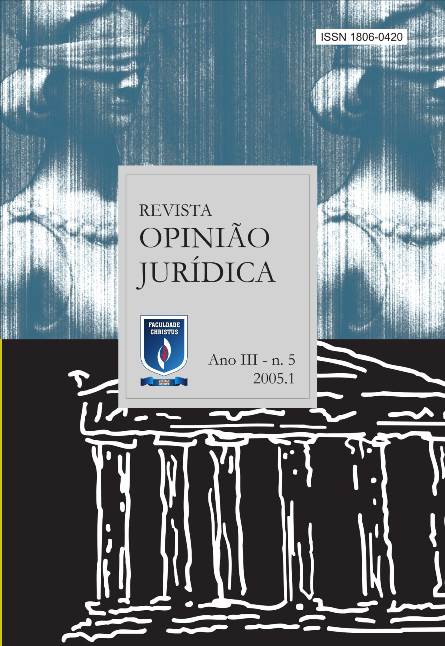FORMAÇÃO DA CONVICÇÃO E INVERSÃO DO ÔNUS DA PROVA SEGUNDO AS PECULIARIDADES DO CASO CONCRETO
DOI:
https://doi.org/10.12662/2447-6641oj.v3i5.p188-201.2005Keywords:
Ônus da prova, Convicção, Verossimilhança, Inversão, Código de Defesa do Consumidor, Coisa julgadaAbstract
A distribuição do ônus da prova e a formação da convicção. Críticas às teses de que o juiz deve julgar sempre com base na verossimilhança que preponderar e de que a falta de prova capaz de gerar convicção plena ou de verdade implica em uma sentença que não produz coisa julgada material. O julgamento fundado em verossimilhança, a inversão do ônus da prova na audiência preliminar e a inversão do ônus da
prova na sentença. O tratamento diferenciado do ônus da prova diante das várias necessidades do direito material. A inversão do ônus da prova no Código de Defesa do Consumidor. Convicção, decisão e motivação.
Downloads
Published
How to Cite
Issue
Section
License
CESSION OF COPYRIGHTS
The submission of articles to analysis for publication on Opinião Jurídica implies the author(s) transfers copyrights to Centro Universitário Christus – UNICHRISTUS for reproduction, publicizing, distribution, printing and publication, according to the Publication Norm 414R, Opin. Jur., Fortaleza, year 12, n. 16, p.1-414, Jan./Dec. 2014, costs to be bore by UNICHRISTUS, in whatever format or means that may or shall exist, in accordance to articles 49 and following of Federal Law 9.610/98.
1. In ceding copyrights, the author(s) agrees to do so in exclusivity, free of charge and for the totality of the work.
2. UNICHRISTUS may make the work, in its entirety or in parts, available for scholarly purposes, without altering its contents, except for small corrections that are deemed necessary.
3. The cession of copyrights is valid in all countries and for versions of the material in its original language or translated into a foreign language.
RESPONSIBILITY FOR THE CONTENT
By submitting an article, the author(s) declare to have sole responsibility for the content of the piece and is(are), therefore, responsible for any judicial or extrajudicial measures referring to it.
1. In case of joint authorship, all authors are considered collectively responsible, except when proved otherwise.


















